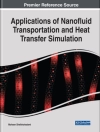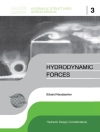This book introduces basic concepts related to computer-aided simulation of welding and prepares the reader to perform the simulation of welding by commercial simulation software. It focuses on conceptualizing the physics of welding, heat transfer, stress development and microstructure development in welding. This book helps the reader to implement these concepts in any commercial software to simulate the welding process according to their own requirement.
表中的内容
Classification of welding processes.- Heat sources in welding processes.- Thermal analysis in welding.- Microstructure evolution in welding.- Mechanical analysis in welding.- Coupled thermo-mechanical analysis.- Modelling of distortion.- Modelling of residual stresses.- Data analysis in welding.- Optimization of welding.
关于作者
Reza Beygi is a postdoctoral researcher at the Institute of Mechanical Engineering and Industrial Management (INEGI). He obtained his Ph D in the area of welding metallurgy at Sharif University of Technology in 2014. Since then, he has been working on welding metallurgy, procedure development, microstructural characterization, thermal analysis, and mechanical analysis of the welded structures.
Eduardo A. S. Marques is a postdoctoral researcher at the Institute of Mechanical Engineering and Industrial Management (INEGI) and guest lecturer at the Department of Mechanical Engineering of the Faculty of Engineering of the University of Porto (FEUP). He obtained his Ph D in the area of structural adhesive bonding for aerospace applications at FEUP in 2016 and now studies the effect of high strain rates, extreme temperature and high relative humidity on the behaviour of various materials and bonded structures.
Lucas F. M. da Silva is Full Professor in the Department of Mechanical Engineering at the Faculty of Engineering of the University of Porto (FEUP) and editor-in-chief of the Journal of Advanced Joining Processes. He leads the Advanced Joining Processes Unit (AJPU) of the Institute of Mechanical Engineering and Industrial Management (INEGI).












